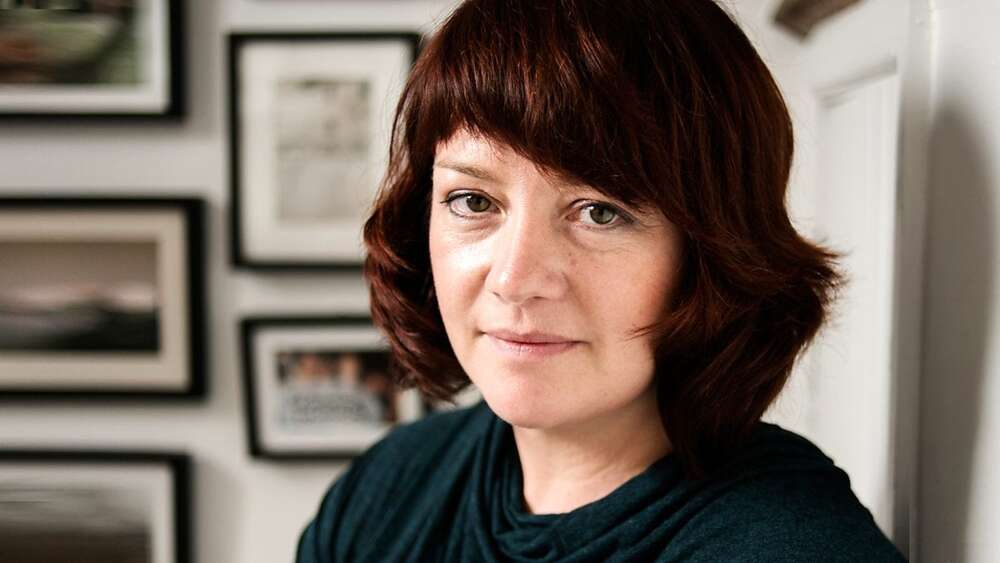You are viewing your 1 free article this month. Login to read more articles.
Eimear McBride | 'I was really bored with the way sex is written about'
Eimear McBride wrote her astonishing first novel, A Girl is a Half-formed Thing, in just six months. But it took nine long years for the book—the story of a young girl dealing with her brother’s brain tumour and the abuse she suffers from family members, told in experimental, fragmentary prose—to find a publisher, before Galley Beggar Press took it on. Faber later joined forces with the Norwich-based indie to publish the mass-market paperback and e-book editions. Their faith was rewarded when the novel won the inaugural Goldsmiths Prize, the Kerry Group Irish Novel of the Year and the 2014 Baileys Women’s Prize for Fiction.
There is an inverse symmetry, then, that McBride’s second novel The Lesser Bohemians (Faber) has taken nine years to write but will be published in September to a receptive readership.
When we meet in Faber’s offices McBride, who is warm, friendly and eloquent, explains that she started writing The Lesser Bohemians back in 2007, three years after completing A Girl is a Half-formed Thing. She had moved back to Ireland, to Cork, when her theatre director husband was offered a job there and found it a wrench to leave the capital. “I suppose I started to write about London because I missed it,” she says. “I started to think about that time when I had first come to London, in 1994, and that experience of leaving home, of coming to the big city.”
The Lesser Bohemians is, she says, a love letter to London, specifically Camden, in the mid-’90s. It is also a love story narrated by an 18-year-old girl (unnamed for most of the novel) who moves to London from Ireland to attend drama school. She meets a much older actor in a pub and they begin an intense, sexually charged relationship. There is a lot of sex in the novel, and McBride has seemingly found a new way to write about it.
I was really bored with the way sex is written about. It’s either completely overblown and ridiculous or else it’s disgusting and horrible. I think most people’s experience of sex is that it’s actually quite nice, and it can be amazing
“These are two people whose lives—their work, who they want to be—involves the physical much more than the verbal in a lot of ways,” she says. “[Sex] is the way that they communicate with each other, it’s the way they get to know each other. Also, I was really bored with the way sex is written about. It’s either completely overblown and ridiculous or else it’s disgusting and horrible. I think most people’s experience of sex is that it’s actually quite nice, and it can be amazing.” She laughs, “I was just tired of all the very depressing writing about sex, how horrible writers seem to find it.”
“I mean, it is hard to write about sex and it’s probably one of the things I worried about most in the writing and the rewriting. Is this a representation of what I want it to be? Or is it too much? Is it too gaudy or too vulgar? But actually it was really about trying to maintain the connection between the inner life and the physical life. These are two people who have sex with each other, who like each other, and come to love each other.”
But of course The Lesser Bohemians is no straightforward love story. McBride’s archetypal setup—of the older, experienced man and the young naiÃàve woman—is soon revealed to be something much more complex and interesting. “There are just so many tropes,”she says.“It’s interesting to circumvent that, to go against the grain of what is expected.”
As their relationship deepens, the lovers find they cannot remain in the moment and the past starts to intrude. Real intimacy will come at a price—and only after long-buried shame has come to the surface. No spoilers here, but McBride says: “It’s something that he carries around inside himself. It’s his most private, secret thing in his life and the minute he tells that story then the relationship is changed forever.”
The title of the novel refers to life of the jobbing actor, or what McBride describes as the “next tier down”. She explains: “It’s not about glamour or fame or any of those things. It’s about people who work in the arts and who struggle. They do it because it is the thing they love, and they put up with a lot of insecurity and financial difficulty. They don’t get to be glamorous movie stars and they don’t get to pay off their mortgage in one fell swoop. It’s about that artistic life that isn’t much celebrated.”
McBride herself attended the Drama Centre in London in the ‘90s, when it was famous for teaching the Stanislavski method, and she drew on her memories of that time for the novel. “It was a part of my life I suppose I was uncomfortable with because I hadn’t pursued [acting]. Unlike almost any other profession, if you stop being an actor you spend the rest of your life being a failed actor and so it was something I didn’t want to think about,” she says. “But it just started to leak in once I started to write about London. I realised that I really wanted to try and recapture those places that I had been and the atmosphere of that time.”
Although McBride chose not to go into acting, her drama training has proved invaluable in other ways. “The Drama Centre had a reputation for being quite crazy and quite traumatic—which it was—but it was also great because it was about learning how to look at characters and work out how they are made. It is maybe a little cumbersome for actors, but great for writers. It’s about building the inner world and then, if you’re clear on the inner world, the outer life makes sense.”
As in A Girl is a Half-formed Thing, McBride’s writing is extraordinary; in the modernist tradition of James Joyce but utterly fresh and immediate. It was reading Ulysses in her twenties “that showed me, if you have the facility, you could do whatever you wanted with language and that the rules didn’t apply”. With her first novel, McBride explains, she was interested in “trying to make language cope and more fully describe that part of life that is destroyed once it begins to get put into straightforward grammatical language”.
The Lesser Bohemians opens with language that is very similar to A Girl is a Half-formed Thing, which I can best attempt to describe as fractured, impressionistic sentences which through some alchemy coalesce to form a complete picture in the reader’s mind. But the language changes when the girl meets the actor, as there has to “be room for communication between people instead of just hearing what’s going on inside [her] head. There’s a lot more conversation in this book.”
Musing on her use of language in both books, McBride says the protagonist in The Lesser Bohemians “becomes more aware of herself as she becomes part of the world...then the language changes and opens. I think it’s more lyrical than A Girl is a Half-formed Thing, and much less difficult.”
Some may find the prose challenging but The Lesser Bohemians ultimately reads as a joyous novel about a young woman’s experience of sexual passion, although the darker sides of love are never far away.
Metadata
The Lesser Bohemians
Imprint: Faber & Faber
Publication: 01.09.16
Formats: HB (£16.99)/EB
ISBNs: 9780571327850/ 9780571327867
Rights sold: US (Hogarth Press) and five more
Editor: Mitzi Angel
Agent: Tracy Bohan, The Wiley Agency










